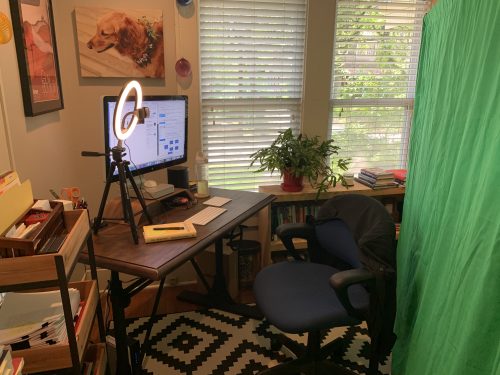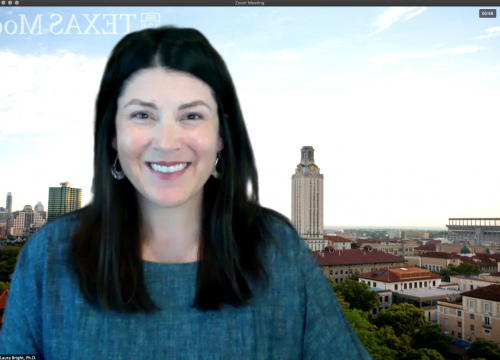I am excited to announce that I will be co-editing a special section of the Journal of Advertising around the theme of “COVID-19 and Advertising”. We are focusing on “research briefs” as the type of submission for this section as the deadline is fast approaching – November 15, 2020. Please see the call details below or visit the JA website:
BACKGROUND
The COVID-19 global pandemic has taken a toll on society through the disruption of economies, governments, businesses, and consumers. Marketing and advertising have decreased in both volume and budgets with the majority of advertisers reducing or eliminating advertising spending in the short-term (IAB 2020). The content of advertising has shifted as well toward health, community, and helping themes. Although there are many practical examples and anecdotes of how brands are shifting to meet consumer needs, there is a tremendous need for research to understand and guide thinking on how brands can survive the pandemic and inspire consumers while helping the world through the COVID-19 crisis – a primary aim of our Pop-Up Special Section on Advertising and COVID-19.
In this Pop-Up Special Section, we seek high-quality, cutting-edge research in the form of Research Notes (6,000 words maximum) that explore how advertising has been impacted by the pandemic. Topics related to macro effects of the pandemic on the industry or consumers (Graham and Frankenberger 2001) are appropriate. Of particular interest is research that examines the role advertising can play in helping society and industry cope and recover, such as how advertising can help persuade consumers to comply with desirable health behaviors (Sundar, Kardes, and Wright 2015), CSR or cause-related advertising initiatives (Coleman et al. 2020), or the role of advertising in public policy designed to promote/protect public health (Kees and Andrews 2019).
Research Notes may be empirical, conceptual, or methodological, and may use quantitative and/or qualitative methodologies. While we offer some potential research questions below as a prompt, it is not an exhaustive list.
SAMPLE TOPICS
- How can advertising be used to promote socially desirable/responsible behaviors (e.g., social distancing) during a global public health crisis?
- How do consumers perceive and process different types of advertising during a health pandemic? Can prosocial advertising boost the brand? Can traditional competitive advertising be perceived as uncaring or detached and damage the brand?
- What is the role of advertising in promoting consumer welfare during the pandemic? What types of messages are most effective to encourage behavioral change and/or compliance with laws/orders to produce consumer well-being? Framing effects?
- What is advertising’s role in discouraging bad consumer behavior such as panic buying during a pandemic?
- What role does advertising play in dissemination of credible information or misinformation transmitted over broadcast, print, digital and/or social media? What drives consumer perceptions of trust of the advertising message during a public health crisis (e.g., source credibility)?
- What advertising tactics and strategies are likely to persist after COVID-19?
- How do advertising messages change during the course of the pandemic and what impact do that have on consumption?
- How will the role of advertising agencies change as the result of the pandemic? What strategies will they need to employ to weather the financial impact?
SUBMISSION GUIDELINES
Please follow submission and format guidelines for the Journal of Advertising found on their website.
For the Pop-up Special Section, we invite Research Notes not to exceed 6,000 words maximum (including references, tables, figures, and appendices).
The submission deadline for the Pop-Up Special Section is November 15, 2020.
Submit manuscripts through ScholarOne, at http://mc.manuscriptcentral.com/ujoa, during November 1-15, 2020. Be sure to select “SPECIAL SECTION: Advertising and COVID-19.” Also note that:
– All articles will undergo blind peer review by at least two reviewers.
– Authors will be notified no later than December 2020 on the preliminary decision over their manuscript for the next round of review.
The anticipated date for publication of the Special Section is June/July 2021.
Any questions about the Pop-Up Special Section can be sent to the guest editors: Hope Jensen Schau and Laura F. Bright, at jacovid19specialsection@gmail.com.
REFERENCES
- Coleman, Joshua T., Royne-Stafford, Marla B., and Kathrynn R. Pounders (2020), “Pride, Guilt, and Self-Regulation in Cause-Related Marketing Advertisements,” Journal of Advertising, 49(1), 34–60.
- Graham, Roger C. and Kristina D. Frankenberger (2011), “The Earnings Effects of Marketing Communication Expenditures During Recessions,” Journal of Advertising, 40(2), 5-24.
- Interactive Advertising Bureau (2020), “Impacts of COVID-19 on Ad Revenue & Ad Spend,” https://www.iab.com/insights/new-researchcoronavirus-ad-revenue-impact-sell-and-buy-side-results/
- Sundar, Aparna, Frank R. Kardes, and Scott A. Wright (2015), “The Influence of Repetitive Health Messages and Sensitivity to Fluency on the Truth Effect in Advertising,” Journal of Advertising, 44(4), 375–87.
- Kees, Jeremy and J. Craig Andrews (2019), “Research Issues and Needs at the Intersection of Advertising and Public Policy,” Journal of Advertising, 48(1), 126-135.

